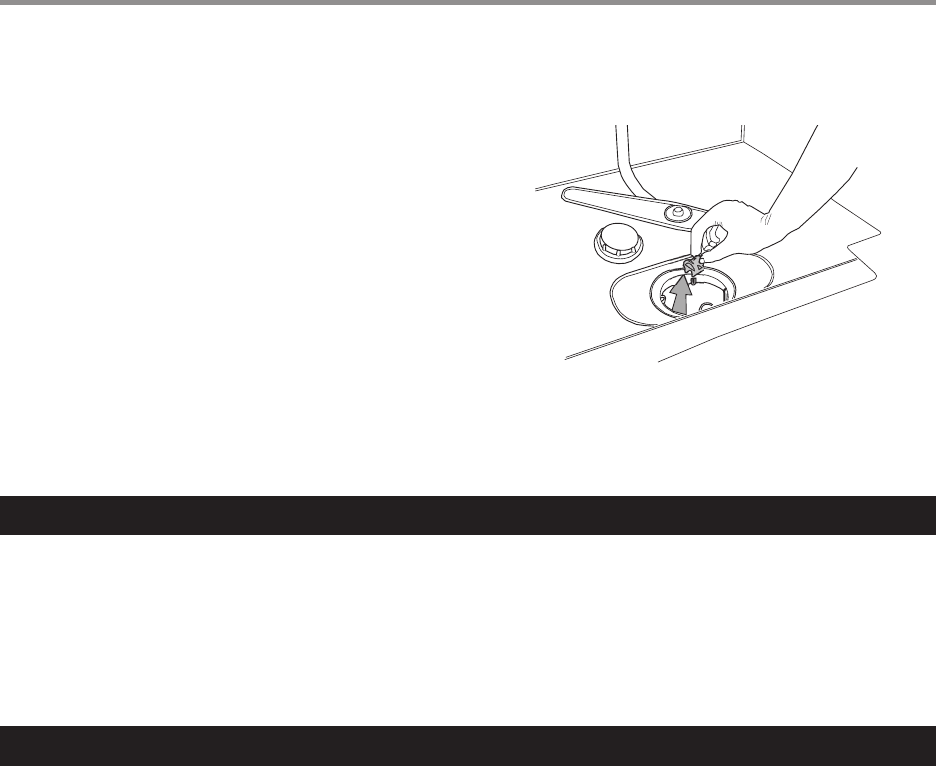
Page 10
Your ASKO dishwasher has an overfill protection device
that automatically shuts off the inlet valve and circulation
pump and starts the drain pump if the water level in the
unit should rise above the normal level. If this happens,
turn the water off at the main supply and call for service.
OVERFILL PROTECTION
If there is water in the base pan due to an overfill or
small leak, the water must be removed before the
dishwasher will start.
When an overfill is detected, the display window will show
a fault message. (See “Fault Codes” on page 8.)
On occasion something may get through the filters and
into the drain pump. The drain pumps on ASKO
dishwashers are designed to automatically reverse if
anything should get caught in the propellers, thus ejecting
the item back into the sump area or down the drain.
Should you need to remove an obstacle from the drain,
first turn the power off then remove the filters (as
explained on page 9). Next, lift out the adaptor piece on
the left side of the sump area. (You might want to remove
any standing water first.) You can then look into the sump
area for the item causing the obstruction. You may need
to use your finger to move the pump blade and loosen
the object. Should you find something, simply scoop it
out then replace the adaptor piece and the filters.
To reach an item caught in the drain pump, remove the
filters then the small black insert in the sump area.
CLEANING THE DRAIN PUMP
WARNING!
Be sure to replace the adaptor piece before you
put the filters back in.
WARNING!
Never run the dishwasher without the filters in
place.
ENERGY SAVING TIPS
♦ If you plan to wash the dishes right away, there’s no
need to pre-rinse. Simply scrape off large particles
and load the dishes.
♦ Wash only full loads.
♦ Use the Pots and Pans and Heavy wash programs
only for heavily soiled dishes.
♦ Don’t use the high temperature for lightly soiled
dishes.
♦ Select the upper or lower basket option when only
one basket is loaded.
♦ Use the Express option when washing only slightly
soiled loads.
♦ Avoid using heat drying. (You can speed up the drying
process by opening the door slightly to release the
moist air.)


















